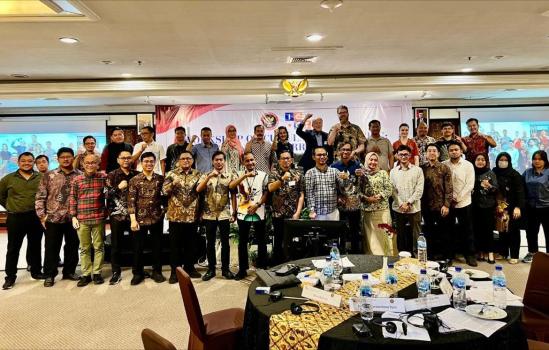As tracked by ICCT’s Foreign Fighters Knowledge Hub, the number of Indonesian foreign terrorist fighters (FTFs) still in Syria and Iraq remains significant. Indonesia has prosecuted a number of returned FTFs under terrorism legislation, mainly for assisting, facilitating, or attempting to commit certain criminal acts.
The lack of evidence remains one of the biggest barriers to such prosecution efforts. Moreover, prosecution of FTFs only for membership or preparatory offences may not fully reflect the harm that victims have suffered. In recent years, some countries have started to prosecute FTFs cumulatively for both terrorist offences and core international crimes, such as war crimes, crimes against humanity, and genocide. Such cumulative charging may lead to higher and recognise the full range of crimes that have been committed.
With funding from the Dutch Ministry of Foreign Affairs, and in consultation with the Indonesian National Counter Terrorism Agency (BNPT), ICCT designed and delivered bespoke training to Indonesian practitioners and policymakers. This provided practical tools and insights on how cumulative charging can be applied, and contributed to an improved and effective rule-of-law based criminal justice response. Over two workshops and a closed-door event, ICCT experts addressed issues including legal obstacles, practical challenges, developing prosecutorial strategy, the use of ‘battlefield’ evidence, interagency and international coordination and cooperation, and best practices from European contexts. A final report and public panel will further disseminate key findings and understanding as well as improving capacity among both practitioners and policy makers.
These activities have enhanced the ability of Indonesian stakeholders to prosecute returning FTFs and other alleged terrorists for the full range of the crimes they have committed.
Highlights
About the project
UNSC 1373 emphasises that all states should bring alleged terrorists to justice reflecting the seriousness of the crimes they have committed. Cumulative charging can also be used outside of the context of FTFs meaning it could also be used to prosecute alleged (domestic) terrorists for terrorist offences alongside ordinary criminal offences, transnational organised crimes or financing of terrorism.
Recognising this, and the opportunity to provide greater justice to victims of terrorism, the Indonesian National Counter Terrorism Agency (BNPT) worked with ICCT to enhance the ability of Indonesian stakeholders to prosecute returning FTFs and other terrorists for the full range of crimes they have committed.
ICCT is a long-standing champion of the voices of victims of terrorism. Its experts were involved the institutionalisation of one of Indonesia’s most impactful victims’-centric civil society organisations. They have authored a blueprint and delivered numerous national workshops on how to support, empower, and broaden the outreach of victims who are willing to become involved in P/CVE efforts.
ICCT has also led research of cases and operationalisation of measures on the linkages between terrorism and core international crimes. It is a core contributor to the GCTF Memorandum which specifically addresses this issue. Experts are building an open-access database compiling filterable and interactively displayed information on cases where in which alleged terrorist were and are being prosecuted for core international crimes and terrorism.
Mobilising this wealth of expertise, and domestic competence, ICCT delivered a workshop to selected policymakers and practitioners in March 2024 on cumulative charging in the Indonesian context, and on how to improve the collection, use, and sharing of evidence in a rule-of-law compliant manner. A closed-door meeting, gathering selected policymakers, practitioners, and civil society organisations, will expand on how to achieve prosecution for the full range of crimes, including exercising mapping legal frameworks and prosecutorial strategies. A third interactive workshop building on the findings of previous workshops and consultations, will develop next steps in enhancing cumulative charging in Indonesia to hold alleged terrorists accountable for the full range of crimes that have been committed. This workshop will also engage the wider public. A final report will offer a roadmap with concrete suggestions on how to overcome some of the legal and practical hurdles to allow cumulative charging. This will be delivered to senior decision-makers across Indonesian justice and security architectures.
These activities will enhance the ability of Indonesian stakeholders to prosecute returning FTFs and other alleged terrorists for the full range of the crimes they have committed. In turn, this will:
- contribute to an improved, effective and rule-of-law based criminal justice response,
- contribute to holding terrorists fully accountable and
- provide more justice and dignity to victims.
Activities1
Partners





